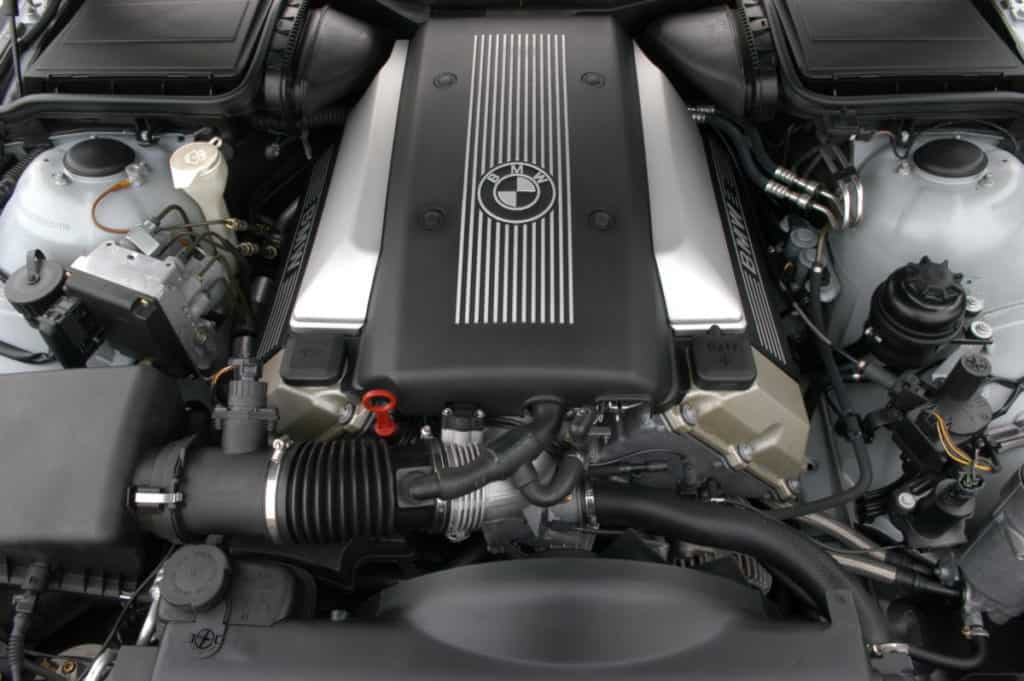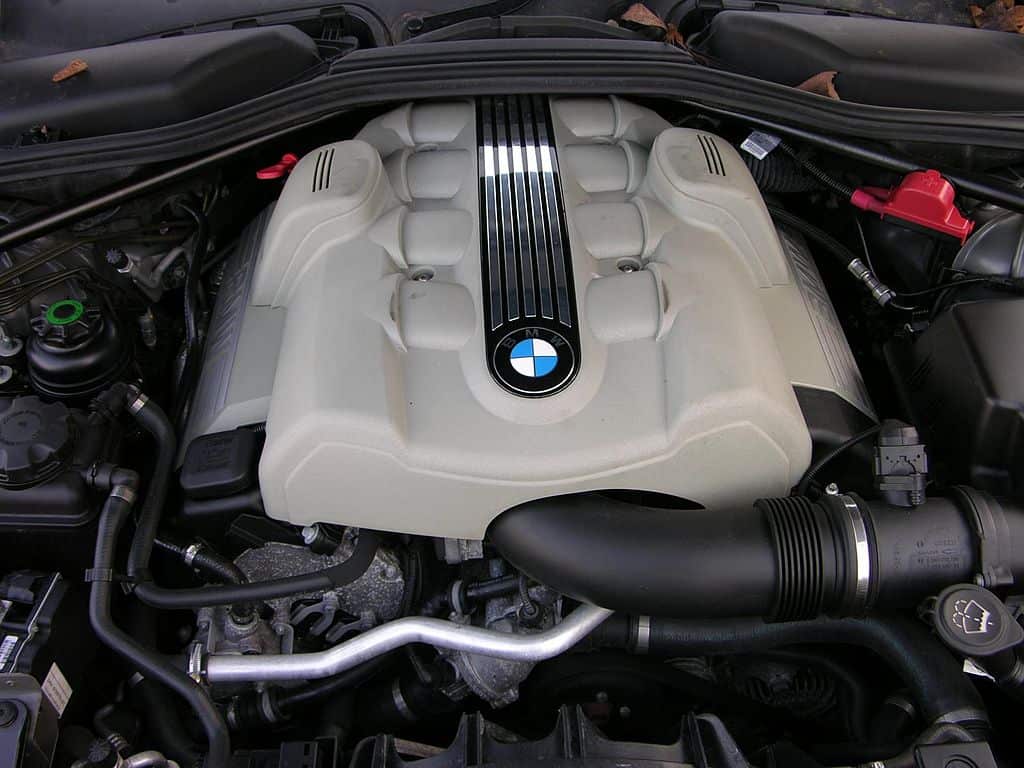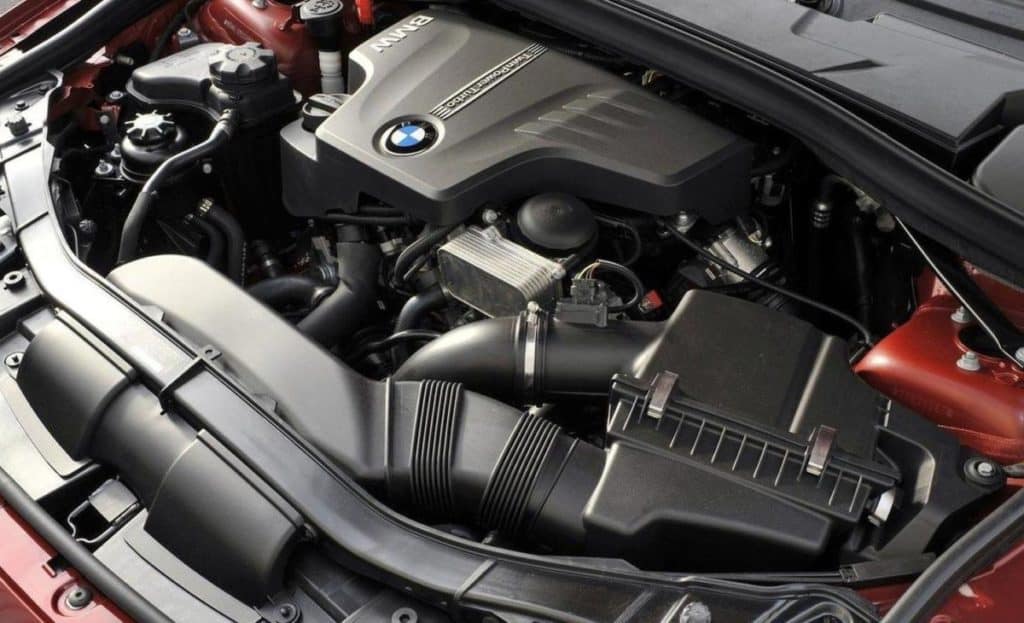Are you thinking of purchasing a BMW with a V8 engine? Maybe you are considering a 5 or 7 Series? Before you hit the buy button and drive that vehicle off the lot you might want to think about how much it is going to cost you when that warranty period ends and things start breaking down.
In some of my other articles, I have discussed BMW’s reputation for being generally unreliable and how this reputation is not always deserved. But how do BMWs with v8 engines compare to BMW more generally?
BMW v8 engines are fairly unreliable compared to BMW’s famous inline six-cylinder engine. Certain BMW v8 engines have problems with valve stem seals, the valley pan cover gasket, excessive oil consumption, engine leaks, and premature engine component failure. However, there are some more reliable BMW v8 engines available.
I know this answer sounds bad but it is not all doom and gloom for the v8 BMW. Although I personally steer away from v8 BMWs, there are several engines and models that are far more reliable. There are also several engines that are far less reliable than the typical v8 BMW. I will cover these engines and I will give you some buyers tips if you do decide to buy a v8 BMW.
Why do v8 BMWs have a reputation for unreliability?
BMW has been making v8 engines for a LONG TIME. Sure, inline-six cylinders have always been BMW’s bread and butter, but BMW has also made four cylinder, eight cylinder, and even twelve cylinder engines.
If you compare a v8 to a v6 engine built the exact same way, the v8 just being larger and holding more horsepower, the v8 would always be less reliable than the v6 engine. The v8 is going to produce more heat, will contain additional components, and there is just going to be more stuff that can go bad.
I’m certainly not saying that the only reason the BMW v8 engine is generally less reliable than the inline-six is that it’s bigger, but that is certainly a contributing factor.
Another major factor is that BMW has simply had some major misses with their v8 engines over the past two decades. So let’s talk about some of the most popular v8 engines over the years.
M62 (THE GOOD)

This v8 engine was used in the 5 Series, 7 Series, and X Series from 1996-2005. The engine came in several size variations up to a 4.8 liter. Overall, this engine has been rated as one of the more reliable motors that BMW has built and for most owners it has aged well.
However, some major issues that have been cited with the M62 include timing chain problems, excessive oil consumption, and VANOS unit failure. Unfortunately, the plastic timing chain guides become brittle and break apart over time and these have to be replaced preventively every 80,000 miles or so. Failure to replace timing chain components preventively can result in serious engine damage if the timing chain slips.
The engine is also prone to oil leaks over time from the valley pan, timing cover, and valve cover. Of course, I have owned a variety of 3 Series BMWs and valve cover leaks are pretty much par for the course so that is nothing special.
Overall, if properly taken care of the M62 v8 engine is fairly reliable and I have seen lots of examples last well into the 200,000 mile range.
N62 (The UGLY)

The N62 was produced from 2001-2010 and it is by far my least favorite out of the BMW V8 engines. I must admit that I am biased against the N62, if you have yet to check out my dumpster fire of an experience with my 4.8 liter X5 you can check it out here.
To sum up quickly, my 2010 X5 had a 4.8 liter N62 engine and it began falling apart around the 80,000 mile range. The engine itself was about as far from DIY friendly as possible, you had to remove the windshield plastics and numerous additional parts to even squeeze out the valve cover gaskets.
N62 engines are known for a couple of different problems. They are prone to leaking valve cover gaskets, upper timing chain cover gaskets, and the valley pan gasket commonly leaks. The coolant transfer pipe seal is another common failure and when it fails you will be out $1,000 easily.
The coolant reservoir is unattached to the radiator, but it is made of cheap plastic and commonly leaks at the seams. Unfortunately, it gets worse because I replaced this ridiculous reservoir three times until it finally stopped leaking.
An alternator bracket gasket is likely something you have never heard of, I had never heard of this gasket until I noticed an oil leak coming from around the alternator. It is a huge pain to replace this gasket, something that some evil engineers must have designed in a BMW factory. How hard could it be? Try having to jack up the engine and remove a motor mount to get to a $10 gasket.
There are a lot of things that are unique to this engine, repairs are often far more expensive than they should be, and they are not DIY friendly. I have seen some BMW apologists online that seem to even want to give this engine a pass but I will not do that.
I have heard it said that friends don’t let friends buy v8 BMWs. I don’t think v8 reliability is that bad across the board, but I would suggest that you stay away from the N62, there are simply too many negatives.
S65
The S65 was produced from 2007-2013 for M model BMWs. Now when you are considering buying an M model BMW you generally need to take reliability complaints with a grain of salt because these M model engines are ALWAYS going to be less reliable than other BMW engines because they are specifically designed for high performance and more than a few people track these cars.
That being said, by far the most common and troubling issue you will see with this engine is rod bearing failure. Owners who track these cars replace them routinely, but they also have a reputation for failing prematurely on street cars. It is an extremely expensive repair to replace these bearings.
**The one silver lining is that there is some debate concerning how prevalent premature rod bearing failure really is, but it’s certainly apparent that it is more prevalent than on other BMW engines.
The throttle body actuator is a common problem on these engines. Luckily, the replacement can be DIY’ed although the part is extremely expensive.
That is pretty much it for these vehicles, overall the S65 is a pretty solid engine, despite the potential for a rod bearing problem.
Turbo Engines

V8 twin-turbocharged engines are a lot of fun, whether it’s a BMW or a Mercedes, these engines are going to have a ton of horsepower and will be performance machines. Twin-turbo v8s also come with some huge drawbacks, most notably is that they are going to require more maintenance and repair than other v8s simply because of the fact that they are twin-turbocharged v8s.
The S63 and the N63 are the two turbo v8 engines that BMW makes. They both have problems with excessive oil consumption, even when these things are new. You should be aware that when I say they burn oil I mean that they burn a LOT of oil. A quart every 700-1,000 miles is commonplace.
Leaking valve stem seals, timing chain issues, and premature fuel injector failure are all problems on these engines.
Even though these engines do have their issues I am not going to suggest that they are unreliable. Why? Because they are TURBOCHARGED V8s! These vehicles are not typically purchased to be daily drivers nor are they purchased to be reliable vehicles. They are fast, high-performance vehicles, and they are well known for being top of the line in that department, despite their reliability issues.
Conclusion
As you can see the BMW v8 engine lineup is a mixed bag. Some are more reliable than others and one or two of them are absolute dumpster fires. Of course, experience will vary with individual vehicles, but in general BMW v8s are not terribly unreliable.
If you are interested in other common engine issues, you can check out this article on BMW n46 engine issues.
Yes, I would stay far away from a few of them like the N62, but others such as the M62 have a great reputation. The most important thing is that you do your research on the vehicle you are interested in and if it’s used you double-check that it has been well taken care of!
